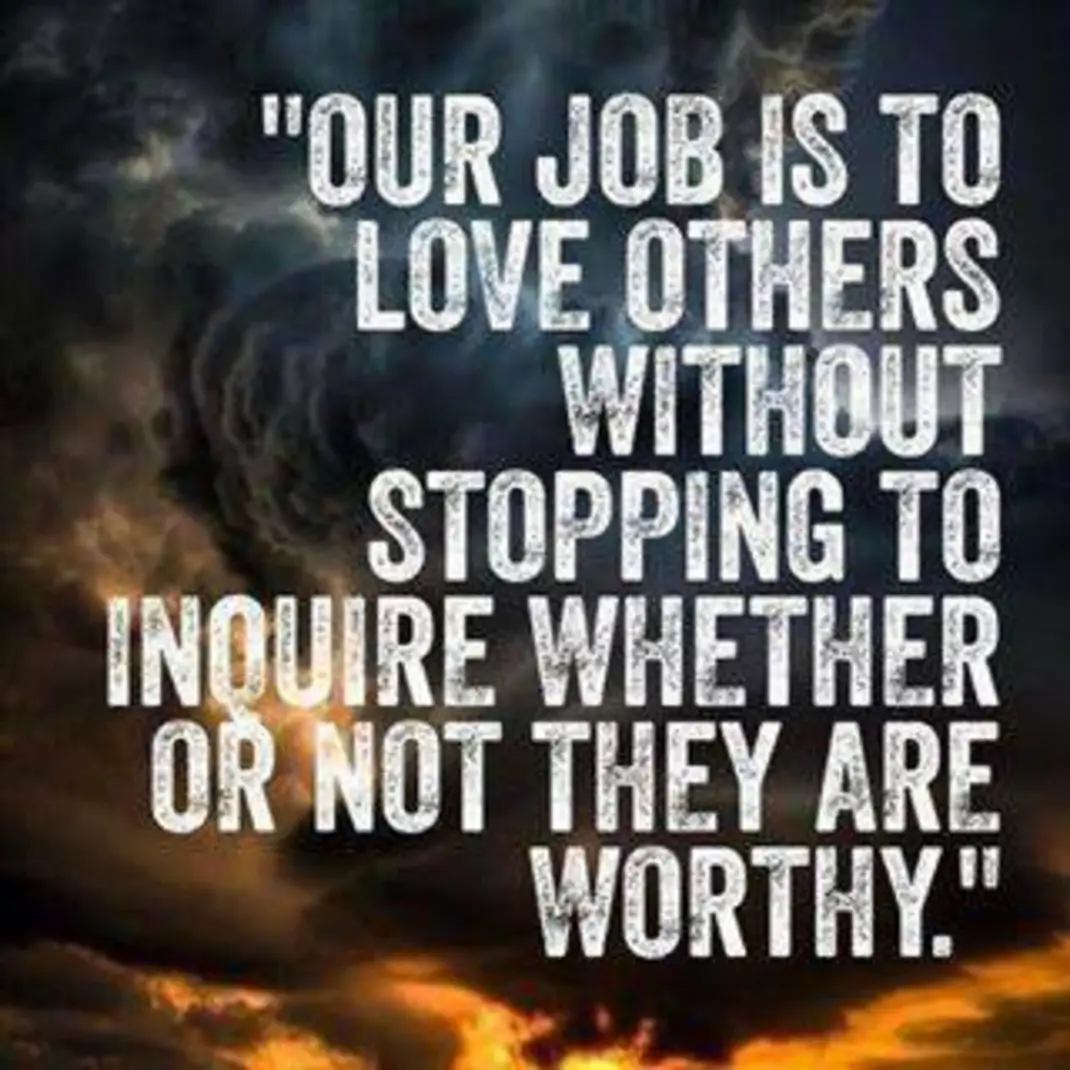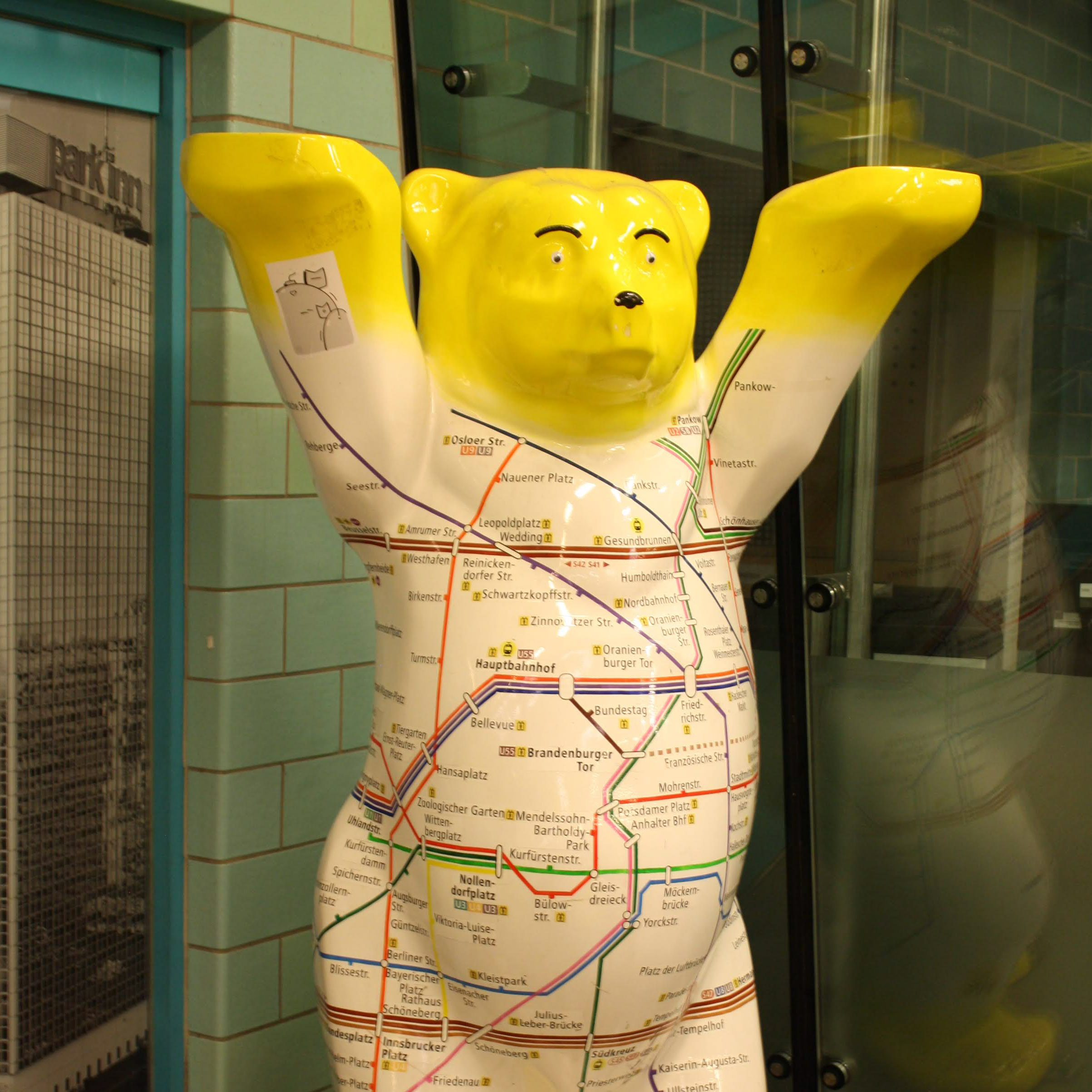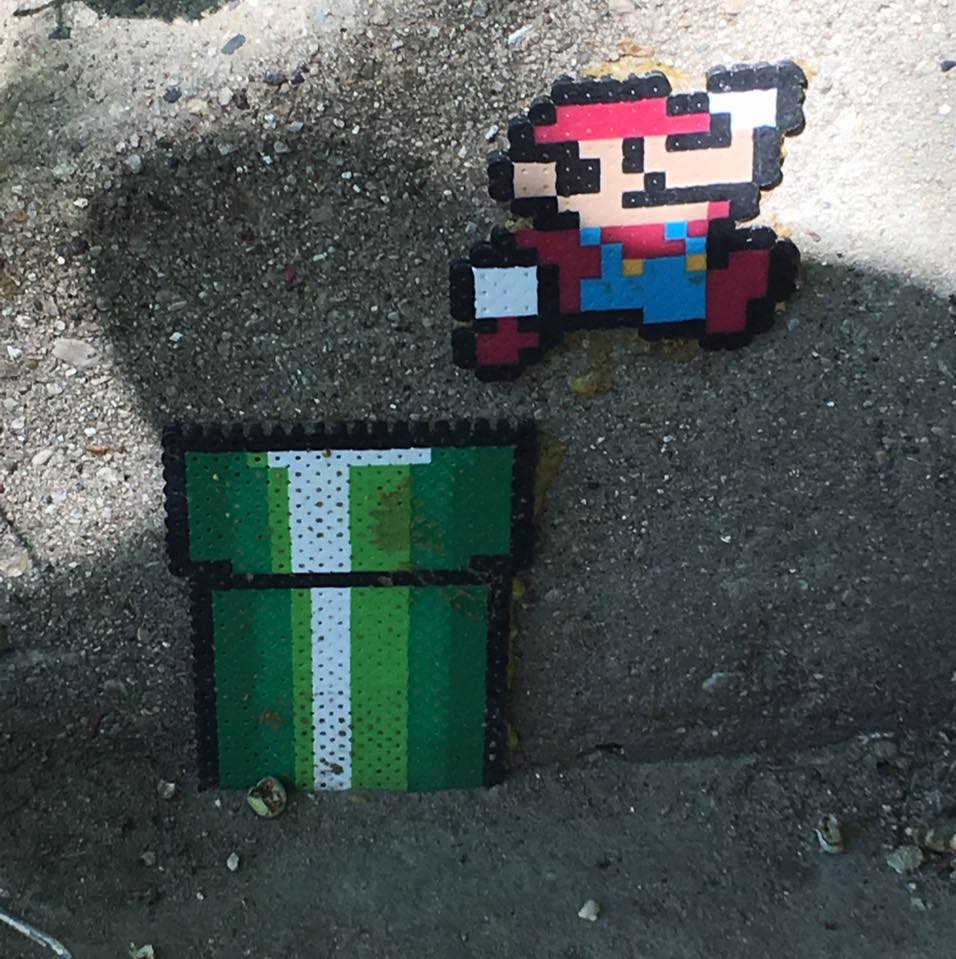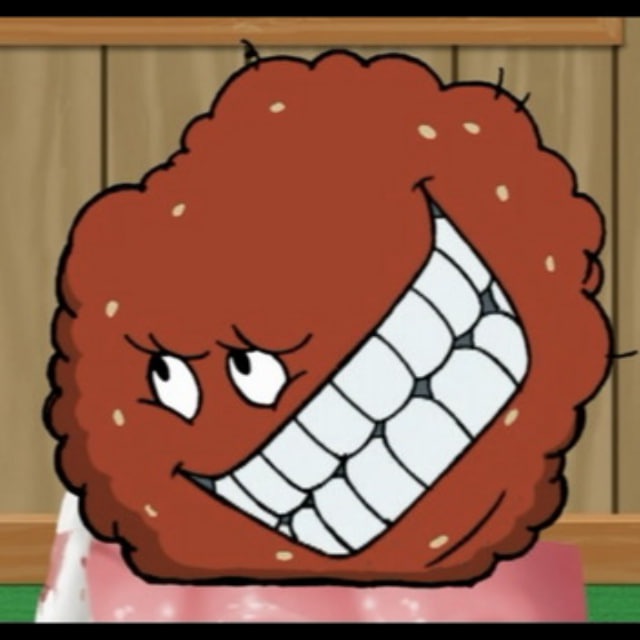Viewers are divided over whether the film should have shown Japanese victims of the weapon created by physicist Robert Oppenheimer. Experts say it’s complicated.
Clickbait outrage. The movie showed what the bomb does to people without feeling like it was exploiting the suffering of innocent victims for the sake of a summer blockbuster.
The article even explains how: “In another scene, Oppenheimer gives a speech and, while looking into the crowd, visualizes some of the predominantly white audience as the victims of his bomb.”
It’s an effective scene. Sometimes what you don’t show (negative space) is as powerful as what you do show.
Yeah, there is a fucking burnt child on the movie.
The story is not about bombing Japan.
Yes, that was a war crime. Yes, that was terrible.
But if you know the story of Oppenheimer, or seen the movie, he did not decide anything. The military took over at that moment in time.
So if it was a movie about the military, this had to be shown. But it is about him. So a suggestion (as is clearly in the movie for about the last hour or so) is more than enough of you ask me.
You’re totally right and the discussion (as so many these days) is completely bollocks.
Since when should the public have the right to demand what an artist ought to put in his work or must not omit. I don’t get it…
He decided to make the bomb. He knew what bombs are used for.
Agreed, but that is not what the movie is about.
He did say (no one knows what he believed) that just having the bomb would mean world peace…
Then he was a fool who’s actions contributed to the murder of hundreds of thousands.
Literally part of the film is him realising this, did you leave after the bomb went off in testing or what?
Typical aggressive online SJW behaviour. Preaching absolute truths and spitting condemnations as if no one had thought about it before. Obviously, the world can be best explained without any nuance or shades of grey ¯\_(ツ)_/¯
His reasoning was if the US didn’t make it, the Nazis would, and that would be even worse. He never wanted to make the bomb, it was just the lesser of two evils.
Making the bomb was a good decision, dropping two over civilians after the war finished was genocide.
But the war wasn’t finished.
The US was never trying to exterminate the Japanese race and culture, so no it wasn’t genocide. It was a fucked up act of war, maybe you could even call it an atrocity, but calling it a genocide is wrong by definition.
And exactly that is the struggle he had. He even informed the president (who told him to fuck off in a polite way)
Used on a nation who’s army’s actions led to the murder of millions
You can’t use a weapon on a nation, you can only use a weapon on a nation’s population.
Look up projected casualties for Operation Downfall
Look up most of the contemporary US pacific command saying the bombings were unnecessary. I know Asian people are just ants to people like you but Jesus, the pathetic rationalizations.
Ants is a pretty apt comparison to Japanese culture at the time. All expected to become soldiers and die for the hive. Seriously, shit was crazy. They were not going to surrender otherwise.
Firebombings were daily killing more than the bombs did as well.
Ants is a pretty apt comparison to Japanese culture at the time.
Okay, thank you for proving my point and admitting you’re a virulent racist so publicly.
Yes, but part of the story of the film is that he’s so caught up in the joy of science and discovery he isn’t thinking that far ahead and it suddenly becomes real after he’s in the meeting deciding on targets (note how that’s one of the few scenes without a score). Then the distance he’s kept at from the use of the weapons inspires his outlook in later scenes.
Americans in general hate to acknowledge the war crimes they commit. I think it was more about a business decision than anything else.
Show me a culture that likes to recognize the war crimes they commited as war crimes.
The Japanese seem to do way more of sweeping their dirty laundry under the rug from WWII under the rug than Americans.
And no, that’s not trying to excuse Americans of acknowledging their own war crimes. Every culture should own their past and do their best to learn from their mistakes.
Germany/Germans have absolutely no issue with recognizing our war crimes. I doubt anyone comes as close in terms to acknowledging their dark history.
Being so far removed from the use of his discovery and put of the loop now the army was done with him is a crucial character moment in the film, and we as the audience are following his story. Having scenes of the bombing, the aftermath of the victims would have undermined that.
I really don’t think so. They literally had a scene where they were debriefing the scientists of the effect of the bomb and the types of wounds and deaths it caused. They could of just showed the slides they were going over there.
Still think it’s a good movie, and for me this is a minor critique, but still something they could have done.
The US is in complete denial of the genocide they did dropping two nuclear bombs in two different cities with mostly just civilians. Everybody else in the world see the pictures of the Japanese aftermath when we study the second world war.
Not at all actually. We learn about it. We discuss it. What’s surprising to me is, you are harping on the atom bombs when the fire bombings caused way more death and destruction. It’s not even a comparison.
deleted by creator
US schools teach that the atom bombs were used as an alternative to an invasion of Japan. The numbers said millions would die on both sides if the Allies staged an invasion. Instead, the largest estimated loss ended up being 226,000 Japanese.
The second bomb was dropped because the military leadership in Japan couldn’t believe the destruction from one bomb wasn’t just another night raid that was super effective and refused to surrender. Then the second bomb dropped, and immediate unconditional surrender was issued
deleted by creator
Ngl, your comment drove me to read up on everything preceding the bombing, right up to Japan’s brutal occupation of China and subsequent decision to invade pearl harbor in the hope of crippling the US long enough that they could secure oil reserves to continue their conquests. Pretty wild.
deleted by creator
The US cut off Japan’s oil supply due Japan’s aggressive foreign policy in Asia. The decision to attack the US was also controversial in the Japanese government.
If you are going to make the argument that Japan was justified in attacking the US due to the oil embargo, then you are also justifying other actions like the British overthrow of Mohammad Mosaddegh and the installation of the Shah of Iran.
deleted by creator
I agree with this comment but I don’t think it qualifies as a genocide, “just” a horrifying unwarranted act of war.
deleted by creator
How does nuking multiple cities not contribute to the American war effort?
There are 1000 decision making paths you can follow in regards to the atomic bombing of Japan, which wasn’t decided lightly, but ultimately the prevailing understanding is correct.
This “holier than thou” alternate history thing you have going on is, sorry to say, it’s delusional.
deleted by creator

That’s not remotely true. American students learn extensively about the dropping of the bombs and their aftermath.
I was gonna say… where is this US denial narrative from? Just stop it.
I remember being shown a documentary with survivors of Hiroshima in high school. It was very graphic. Not only were there interviews, it showed drawings from people who were firsthand witnesses, with the rivers filled with burnt people. This was in a pretty conservative part of the US, too.
So yea, I’d have to agree that the US doesn’t try to hide what those bombings did.
I saw those pictures in school. We know that Truman signed off on dropping the bomb on two civilian cities and it was a horror that had never been seen in the world before or since.
Dude, we talk about our atrocities all the time. The current push to whitewash Native American genocide and slavery is actually getting a huge pushback, because we talk openly about this stuff in the US and it’s only a minority that tries to silence it. We talk openly about the atrocities during the Vietnam War, and about the invasion of Iraq, and about prosecution for war crimes in Afghanistan and Iraq.
You can say a LOT about the US, and even the amount of denial we have about our standing in the world, but you can’t call us in denial about stuff like that. We’re in conflict within ourselves about it, but it’s a well known and well discussed thing in the US.
And wait… are you from lemmygrad? The tankie server?
I think terminally online people and their kids probably know mostly the truth (or closer to it) than the average American. The fact that one major political party in America is having pretty major success pushing whitewashed history or at least preventing they’re history from being taught strongly undercuts your contention that “we talk about our atrocities all the time.”
If it was some fringe group like the John Birch Society or some Ayn Rand cult, sure. But it’s almost every Republican primary candidate.
I suppose I am being too optimistic.
I also have a major problem whenever I get the sense a European is trashing the US for problems and a history that are absolutely being ignored in Europe. There’s been a glut of that making me over-sensitive perhaps. My Brit-sense was tingling for the original comment, but it may be off.
We do not talk about our atrocities all the time. Politicians can almost never reference them. In the rare cases they allude to them, they never apologize and they never take material steps to repair the damage.
We allow private corporations to produce student text books for profit, and when the monopoly status of these corps causes the largest states to control the curriculum, everyone suffers. When you combine that with the Daughters of Confederacy movement to rewrite history in the text books, and Texas being one of the biggest markets for text books, you end up with over a century of white washing indoctrination in schools for 12 years, minimum, of almost 100% of children in the country.
I grew up in a liberal-ass state we still called the first settlers “pilgrims” and said their motivation was religious freedom. We celebrate Thanksgiving and Columbus and everyone who tries to speak out against it is literally risking their safety and the safety of their family because we have such a massive and deep-seated problem that random acts of terror are carried out without any coordination.
Lynchings never stopped, but no one except radicals talk about it. The police are literally an occupying military force, but no one except radicals talk about it.
No, we’re not in conflict with ourselves about it. There is a very small radical group within the country that attempts to raise the level of discourse and nearly every single institution, every seat of power, every media company, every billionaire, every major land owner, every politician, nearly every educator, nearly every judge - everything is aligned against raising this discourse.
If you think we’re earnestly and honestly struggling with this stuff as a nation, you are delusional.
I’ve been out of the country and we are lightyears ahead of other countries when it comes to reckoning with our past. No, we’re not perfect, but we’re a hell of a lot more open. You know how I know?
Because I was raised in Trumpland, PA and I joined the military and served in Mississippi, Texas, Oklahoma and Europe and I was able to learn about the Native American genocide, slavery, and Hiroshima and Nagasaki at school, and managed to absorb the rest through pop culture. We had a variety of differing assumptions when we talked, but we still talked. Yes, I heard that Lee was a gentleman but a trip to Gettysburg easily discarded that notion. My history teacher was quick to point out the founding fathers were opportunists.
There is stuff, like the bullshit we’ve been pulling in South America, that hasn’t gotten discussed. That’s true. But it’s not just the radical minority that’s aware the country is basically built on rivers of blood. The awareness is all over our pop culture.
You’re not hearing what’s good enough in your liberal state, but I have been knee deep in conservatism since birth and I’ve still managed to pick up on the horrors of our national history.
Now, just for comparison, go ask a Brit or a Frenchman about the Native American genocide and their country’s role in it.
The only places we should be comparing ourselves against in this regard are other colonies and former colonies: Canada, Australia, South Africa, Jamaica, Haiti, etc.
For example, compared with Haiti, we’re way behind.
Despite you learning about the Native American genocide, we still commit atrocities against them, en masse. We still leave open uranium waste in their areas. We nuked their desert environments hundreds of times. We are currently actively in the process of stealing more water from them. There may be some people who are aware, like you said, and for whatever reason the military appears to be a place where some units get conscious quickly while others devolve into xenophobia just as quickly, but the national conversation is about anti-science and anti-progress indians that deserve to be put in their place and stay quiet and maybe they should work on their alcoholism. The same is true for the national conversation about black people. We elected Joe fucking Biden. There’s only a conversation about his role in maintaining structural racism in radical spaces, and even fewer and smaller radical spaces are discussing Harris’s maintenance of structural racism.
Yes, Gettysburg discarded the notion that Lee was a gentlemen for you, and yet millions maintain that the Civil War pitted brother against brother and therefore the losers should be able to lose with dignity. And US LIBERALS are saying this!
My history teacher was quick to point out the founding fathers were opportunists.
But not that they’re entire project was to privilege white land owning men and that white men laborers should not be allowed to vote because they weren’t rich enough, and then of course everyone else. That the entire American project was to extract as much wealth as possible and had nothing to do liberty and justice for all but rather privilege for super profits and legal protections for white male land owners. Yes, there are some cracks beginning to open in less than half of the social studies classes, but they still celebrate Columbus Day and make pilgrim hats.
But it’s not just the radical minority that’s aware the country is basically built on rivers of blood. The awareness is all over our pop culture.
That awareness is not what I’m talking about. Most of that awareness is part of the rationalization/justification process. It’s considered ancient history, and it’s coupled with projection about other historical events. It’s not an awareness of injustice that we continue to perpetrate and participate in. It’s not understood that cultural genocide in America is happening right now. It’s not understood that eugenics was guiding domestic policy up through the 70s while we were sterilizing a third of Puerto Rico.
Everyone knows we nuked civilians. Most people will tell you it was better than the alternative. This is a performative level of awareness. It is not an awareness of the context and the implications. It is a minimal awareness required to operate in the world.
Wow the denial is strong with this one.
Ugh, look. I don’t want to fight because clearly you are in a different environment and social circle and you’re right that stuff like the practice of overthrowing governments in South America to benefit businesses and a large number of horrors are not discussed.
Hiroshima and Nagasaki are not among them. And when it comes to racism, we are actually talking about it unlike Europe. The most powerful people in the country want to kill this discourse, but they CAN’T except in pockets of the most brainwashed home-schooled isolated people in the country.
But I resent being called delusional. Because we are earnestly and honestly struggling with this stuff as a nation. It’s just that we’re struggling against all the powers you name, and the dark history of the United States is not hidden like it is in other countries. It’s present and on most people’s minds.
Talk is cheap in a country that has a history of blood on its hands. Pushback on rhetoric isn’t the only thing worth being proud about nor is it very productive. Just as another user pointed out, there’s no material solutions being offered to the remainders of a group that was victim of colonialism, that is still prevalent today.
Every great nation has blood on its hands. The Japanese aren’t exactly Mother Theresa’s themselves. Oh and they shouldn’t have attacked us if they didn’t want to deal with the consequences. They had no problem killing or injuring thousands of our service men and women. Oh……THAT. Give it a rest.
I didn’t intend for this to devolve into Whataboutism.
I don’t want to get into it with the guy from lemmygrad, but the idea that the US behavior can be compared only to colonized countries is ridiculous. We’re in the tier of countries like Australia, New Zealand and such where the colonizers split off from the greater colonial power, and we’re also in the tier of colonizers like Britain, Spain, Japan and France for our activities in the Pacific and South America.
I can’t comment on Japanese crimes, that’s for another continent, or if they were better or worse than the US’s or say, Britain’s. Still, if atomic bombs were dropped on two cities in Britain it would be a travesty and a crime no matter what Britain’s done. Same as if we exploded a bunch of atomic bombs and poisoned the earth near where Native Americans live. Which we did.
I still don’t think we’re in denial. Umm, the previous poster might be. But as a whole I think we know these decisions were immoral. I just think that, as a nation, we don’t have the political will built yet to make reparations. I think the left group is larger. The right is a minority, it’s just a minority where the money and power is concentrated. Concentrated in many cases by generational wealth, which means the same people stopping us from enacting any meaningful reparations are the descendants of the people who made the decisions. Which makes sense, those decisions got them the power they have now. It’s a hell of a thing to fight against.
But the difference between us simply may be optimism on my part.
How are you going to participate in this discussion and just whip out a “I can’t comment on Japanese crimes”?
The rape of Nanking.
I went to public school.
That isn’t a genocide.
Wow… comment section is full of genocide deniers.
They probably believe that killing off all native Americans and still destroying them is also not genocide.
Unbelievable.
The killings of Native Americans in the US can absolutely be called a genocide. The use of nuclear weapons in Japan was a horrible act of war that killed so many people, but it is by definition not a genocide. Calling it one dilutes the meaning of the word genocide. Using the right words and definitions when talking about tragedies of war is not denial of said atrocities.
Genocide is the deliberate killing of a large number of people from a particular nation or ethnic group with the aim of destroying that nation or group.
What the Nazis did to the Jews was genocide. What the Chinese are currently doing to the Uyghurs is genocide. The Circassian genocide in Russia was happening around the same time as the US genocide of the Native Americans.
The troll doesn’t understand the meaning of genocide, and doesn’t understand strategic bombing. The US didn’t want to extinguish the Japanese, and neither the Japanese of that era or the current era believe(d) it was genocide. They had great respect for US General Douglas MacArthur, so much so that Japanese Emperor Hirohito stood side by side with him and publicly declared his respect for his one-time opponent.
Trolls seem to think US schools don’t teach this stuff. My children learned it and taught it to my immigrant ass.
What the Chinese are currently doing to the Uyghurs is genocide.
Wrong
The Japanese on the other hand could perhaps learn about genocides of their own actions.
What the US did to the Natives is more in line with what the Japanese did to China. Equating the use of atomic bombs as genocide is quite off the mark.
Well, the Japanese don’t love to acknowledge their war crimes either, which btw also ranked pretty high on the Evil Fucked Up Shit scale.
If we’re to see Hiroshima aftermath, then we should also mention stuff like The Rape of Nanjing for context, which alone had an approximate number casualties similar to the two bombs.
Not to mention Unit 731 (cw: genocide, NSFL)
deleted by creator
I have not seen the film yet, but it seems like this is a biopic about Oppenheimer, not a WWII movie.
Also, do directors need to infantilize their audience by directly showing “this was bad. Here is why this was bad”? Like, obviously the bombings of Hiroshima and Nagasaki were devastating. If you have basic history knowledge you should already know that, and know that those bombings were a direct consequence from what was depicted in the movie with out it being spelled out for you.
The movie is more about the political witchhunt after the fact than it is directly about the bomb itself
Film is told from Oppenheimer’s perspective, I see no problem with it. Especially as it is shown that he had trouble with moral questions over creating a bomb and using it. And there is a really powerful scene with him being troubled with the Japan bombing and imagines bomb being detonated while he gives speech.
The movie doesn’t show away from the affects of a nuclear explosion, but it does show the distance that the gadget creators had to the gadget’s victims. There is no mistaking the destructive power of a nuclear weapon. It just happens to be that the destruction isn’t a direct response that the inventor deals with.
I think the movie did a pretty good job of showing that he wasn’t the inventor of the atomic bomb. The moniker has always been “father” of the atomic bomb, since he was more of a supervisor and manager than a deep researcher at that point
True. He was instrumental, but more in leading the effort of different researchers.
Heh, first it was criticism of the credits, now is what should and shouldn’t be in the movie. If you know better, why don’t you make your own movie that will put Nolan to shame?
What was with the credits?
That it didn’t include all people responsible for VFX.
The 70mm IMAX version basically hit the limit of the length the equipment can handle, and even treaties special extensions: https://youtu.be/d5XqqylBW7M?t=592
Is quite cool to watch the whole video, which they show how the movie is prepared before it can be projected.
Here is an alternative Piped link(s): https://piped.video/d5XqqylBW7M?t=592
https://piped.video/d5XqqylBW7M?t=592
Piped is a privacy-respecting open-source alternative frontend to YouTube.
I’m open-source, check me out at GitHub.
hit the limit of the length
Thanks for the reminder that it’s 3 hours long, the thread was making me want to go and see it.
For what it’s worth, it doesn’t feel like three hours. It’s dense and moves at a nice clip.
It was among the fastest 3 hours of my life friend, I definitely recommend it. Masterpiece.
Saw it last night in IMAX. There were no parts that dragged. It did not feel like 3 hours and was very engaging the whole time. I’m still reflecting on it. Go see it if you can in IMAX
Nolan pushed the limit of IMAX projectors with Interstellar run time in 2014, he went out of his way to find out what the maximum that could be done with platter modifications, an extra 20 minutes.
Sure show the Japanese victims, but then you need to show why they were victims in the first place. So you need to show Japanese Imperialism that committed atrocities in Nanking and the attack on Pearl Harbour.
Maybe we could go further and show that Japanese Imperialism was driven by the existential threat of Western Imperialism, which does not in any way lessen the horrors committed by Imperial Japan.
Sometimes the whole story can’t be told in a single film. Not all of it is important to the message or topic the author, director and producers wish to send or examine.
The Japanese had decades of atrocities under their belt by the closing of world war II. There was the Bataan Death March, Siam, occupation of Manchuria, invasion of Singapore, Guam, Philippines, attack on Pearl harbor, and many many other Acts of War that the empire of Japan engaged in. Unlike others mentioned, unit 731 and the rape of Nanjing. They were utterly ruthless.
Hell, there was that one Japanese imperial soldier who was still murdering foreigners like 30 years after the war freaking ended!
So to say that Japan didn’t deserve having atomic bombs dropped on it I believe is disingenuous. The people of Japan supported the war and were very militant, unlike the Japanese of today. They believe that they could conquer all of Asia and they try their hardest to do so. They were also prepared to fight to the death to defend their home island. During the preparation and bombing of Japan, the Russians were also preparing in amphibious invasion of Japan. This would have split the Japanese islands into Russian and American administered Islands, like what happened to Germany in the post-war.
The two nuclear bombs dropped on Japan killed roughly 150,000 people. That is less people than died at the siege of Stalingrad in Russia. That is less people than died in a few weeks at the Battle of the Somme during world War I.
The fact is that War sucks, and it’s not just the soldiers who suffer and die - it’s the civilians as well. We should never forget that, and that there’s one thing that the Japanese will tell you today is that we should avoid war at all cost. Whether you agree with that or not, is for you to decide.
Do you think that the pro meddling in the middle east voters in the world trade centre that day deserved to die like that?
Genuinely, I don’t. I don’t think average citizens, even really fucking shitty and ignorant ones, deserve capital punishment for the crimes of those that claim dominion over them.
One thing I would add is that the aftermath of the Japanese bombings have been extensively covered in various movies, anime and other media including the traveling Hiroshima atomic bomb museum. It is very important for people to understand what the tragedy that the bombings lead to. But that’s an entire movie in and of itself.
Go watch Grave of the Fireflies or Barefoot Gen if you would like to know more.
Edit
This is a great quote that I agree with:
“I don’t think we should depend on Hollywood to tell our stories with the nuance and the depth and the care that they really deserve,” Nina Wallace
Her point is that it’s not Nolan’s fault that he didn’t make the movie about the victims, it’s that he wasn’t the right person for it. It’s a systemic issue that Hollywood hires predominantly white male directors to make movies. They would need a different director who is conscientious about the subject matter to go make the movie about the victims. Of course, there are already movies about the victims that have been made in Japan…
Exactly this. “Properly” covering the topic would require 18 movies covering several hundred years of history and containing both World Wars. Sometimes it’s just out of scope for the project you’re trying to make. It would be great for a podcast series or for a long series of documentaries, not so much for a single movie with a 180 minute runtime.
I’m no expert but I enjoyed Dan Carlin’s Supernova in the East podcast series on the background, lead up, and involvement of Japan in World War II - https://open.spotify.com/episode/2lqNevhLx08QPmvCLjhS4g
I agree with the experts. I mean ppl can have an opinion but I wasn’t on the storyboard team so I have no clue whether that would even fit the storyline they were following and whether it would help the story in furtherance.
I get the opinion, I don’t see why we need an article about it.
At the end of the day, humans don’t need weapons to display cruelty. We have popped many eyes with our thumbs over the eons.
Well of course it’s not, the us government wants to remind everyone that the bombings were a ‘nessicary evil’ that bs is still taught in schools. Not being a conspiracy guy but I cant imagine a high budget highly publicized movie would rock the boat like that. If you want to hear about sloughing go listen to the last podcast on the lefts 6 part magnum opus on the Manhattan project.
Well of course it’s not, the us government wants to
The movie does a decent job portraying why nuclear bomb development was so much more complex than simply a necessary evil, a good, or an unnecessary evil. It’s just not a simple topic with easy answers.
The left is not in agreement about the usage or development of the bombs.
Quite frankly if the U.S. didn’t develop it, Germany would have. And they would have used it just like the United States did.
Germany was already defeated and occupied, so I have a hard time following your logic.
When the bombs were ultimately dropped, yes, but the Manhattan Project (actual development of the bomb) took place coinciding with the Nazi nuclear program before the defeat of Nazi Germany.
The Nazis actually started ahead of the Americans in 1939, and had the scientist who discovered nuclear fission as part of the program. The Nazis by all accounts had a head start and better scientists.
It wasn’t until it was clear the Nazis were using heavy water (i.e focusing on nuclear reactors) in 1942 that the US got the first clue that the Nazis had abandoned the idea of nuclear bombs in the war effort, but the project was still funded in Nazi Germany until the end of the war in 1945.Not great logic saying that Germany would have. But he does have a small point. A lot of our reason for developing it was because we thought Germany had been working on it. Our development started before Germany had been defeated and we had reason to believe (via espionage) that they at least had collected the materials needed, and had scientists familiar with the physics. After the war, we discovered that their program was no where close to actually making a bomb. We probably could have, and maybe should have stopped once Germany fell.
So not to sound like I fully support the bombings, but they did touch in the movie about why it was a good thing. To save not only hundreds of thousands of American soldiers who would have invaded mainland Japan, but also the (potentially) greater amount of Japanese soldiers and citizens that would have died too. Millions to die because conventional war tactics weren’t enough to scare the Japanese.
They were hard-core. They took the fire bombings (which had killed many more than the nukes) in stride. They raped Nanking with unimaginable horrors. Countless human atrocities in the name of “science”
The Japan of today in not the Japan on WW2. There’s a good amount of people who would say the nukes were a merciful way to end the war. The US, in prep for the mainland assault, made the amount of purple hearts they thought they would need for just the wounded. Since the assault never happened, we still hand them out to this day
This is a really common line that is patently false, the nukes had very little to do with triggering the Japanese surrender. The meeting to discuss surrender occured days after the first bombing, and started prior to the second bomb. I wasn’t privy to the Council discussions, obviously, but it is exceedingly unlikely they would sit around for days after the first bombing before meeting to discuss surrender. What did happen immediately prior to the surrender meeting was the Soviet invasion.
The nuking, of primarily non-military targets by the way, was largely a show of force demonstration to the soviets. It was not a “necessary evil” to save lives, and it was sure as hell not a mercy.
Moreover, the enemy has begun to employ a new and most cruel bomb, the power of which to do damage is, indeed, incalculable, taking the toll of many innocent lives. Should we continue to fight, not only would it result in an ultimate collapse and obliteration of the Japanese nation, but also it would lead to the total extinction of human civilization.
From the Emperor Hirohito’s Surrender Broadcast.
If you have a primary source that says that the surrender was caused by the declaration of war by the Soviet Union, I’d love to see it.
It makes the perfect excuse for the emperor to surrender on, no doubt about that. Put yourself into the emperor’s shoes. You’ve been lying to your people about their efficacy in the war, your country is devastated. Do you admit you led the country into war or that one singular scientific breakthrough that nobody could have seen coming was responsible? You shift all blame off your shoulders and that of your leadership, and all onto this one perfect excuse. It also placates the Americans. It enhanced the perception of US military power; whereas if the soviet entry into the war was a deciding factor, the same would be true for the USSR. Attributing the surrender to the bombs is basically better for every party involved, except the soviets.
There are a few reasons why, looking back at it, that it doesn’t make sense that the nuclear bomb was the deciding factor.
Well in advance of the surrender, Deputy Chief of Staff of the Army Torashiro Kawabe said that “The absolute maintenance of peace in our relations with the Soviet Union is imperative for the continuation of the war.” Japan always knew that they would not be able to fight that front of the war as well and that the USSR entering into the conflict would end their ability to continue.
There are the timing issues I already mentioned. The second bombing could not have possibly be involved, and a three day turnaround from the first bomb to even starting talks to discuss surrender (in fact, directly rejecting that discussion at one point) seems extraordinarily slow. Did it probably come up in those discussions? I would be surprised if it wasn’t mentioned, but the details of those talks were never made public. Was it the impetus for calling the meetings? Decidely not.
At this point in the war, Japanese leadership had little illusions that they were going to defeat the United States. They may have convinced large swathes of the population of that, but their outlook wasn’t good. So what were their avenues for the best surrender terms that they could get. As outlined by Ward Wilson, a position I quite agree with, they had two viable paths. There was the diplomatic route, with the soviet union acting as a mediator for Japanese surrender to America. Sokichi Takagi wrote about this option in his diaries if you are looking for a primary source (I can provide the Japanese if you can read it, but I am not sure where to find an English translation) . Which would undoubtedly present better terms than an unconditional surrender to the US would have. Obviously an option that was not on the table when the soviets entered the war.
The second was the military holdout, which is what people often cite as the best justification for the bombing. However, in anticipation of the US invasion, Japan had moved the vast majority of their troops to Kyushu, leaving little to nothing to defend Manchuria and Hokkaido. A last stand against one super power from one direction is one thing, the same feat from two directions was impossible for what was left of the Japanese military. The Soviets would have had met little to no resistance moving into Hokkaido from Manchuria. Any hope of bleeding the US forces out in a month long war of attrition evaporated; large swaths of northern Japanese territories would be occupied by the Soviet Union in weeks.
I don’t mean to write a full on essay here, but I am happy to go into detail on any particular subject if you would like.
What you wrote is just speculation without a primary source. I’m quoting historical documents. What proof do you have which backs up your theory?
The Soviet invasion…
of the Kuril islands, Manchuria, and South Sakhalin. None of which were part of the Japanese mainland.
Yes, this did contribute to the surrender of Japan as they realized the USSR would not act like a neutral third party, but it did not cause the surrender.
The nuclear bombings of the mainland contributed quite a lot to the surrender effort as well, arguably moreso (or at least equally to) than the Japanese occupated territories.It’s hard to claim the nuclear bombs were a major contributor to their surrender when Japan was trying to surrender before the first bomb dropped. What made the surrender difficult was the ally’s demand that the Japanese emperor be stripped of his power. This was a big ask at the time, since the emperor was directly tied into Japanese religion.
In addition to this, the American military were committing war crimes before the drop of the nuclear bombs. The American military was killing more japanese citizens in there multiple night time carpet bombing runs than they did with the nuclear bombs.
The nuclear bomb was not “to end the war” because the war was already over when Truman decided go ahead and use then. The nuclear bomb was to show the USSR our military capabilities to scare them once the war ended.
It’s hard to claim the nuclear bombs were a major contributor to their surrender when Japan was trying to surrender before the first bomb dropped
They had a minority interest in surrendering before the first bomb dropped. The Fire Bombing of Tokyo civilan centers (arguably a worse atrocity than the bombs) had their morale and their communications broken, but every source I’ve ever read concludes that they genuinely were not ready to surrender, and it would have taken an actual mini-coup to do so, one that seemed to not be happening.
That doesn’t mean the bombs were necessary. They were, however, contributors to the surrender. The Japan preparing to rally from having their capital razed, civilian targeting worse than they had seen either side commit in the war, was suddenly struck with Hiroshima being vaporized.
I DO believe they were in the process of surrendering when the bomb hit Nagisaki.
Taking a step back, the bigger question is whether there are wrong ways to win a war. The US took Japan to surrender using 4(or more?) of the biggest civilian-targetting mass-death events in human history. We destroyed their civilian economy with lethal force in preference to destroying their military infrastructure. I think that was unacceptable.
But it DID contribute to the surrender.
Nanking?
Most of the current US naval command at the time later said the bombings were completely unnecessary. Your rhetoric is unsupported historical revisionism with the purpose of providing rhetorical cover for war crimes.
Ok but what about nanking?
Oh, Japanese soldiers that the victims of the bombings had no control over doing war crimes surely means the victims of US war crimes had it coming.
So, you’d rather send in an all out invasion like they were planning on doing?
I’d rather the US just let them surrender on the condition that the emperor remained, as that is what ended up happening anyway. All those deaths between the offer being rejected and the unconditional surrender were pointless.
I’d rather there be no war but ok
will Japanese directors show the camps of sex slaves they have in China or Korea? of course not
so there is your answerWhataboutism is not helpful.
The entire premise of the article is literally whataboutism
What? How? It’s discussing whether the victims of the bomb Oppenheimer created should be represented more. It’s a direct result of his actions and germane to the plot.
It’s not germane to the plot at all as the film is about him as a character and his experience, not about the bombing or the war more generally. His realisation of the distance he has from his victims and how he’s been forced out the loop once the bombs were finished is crucial to his arc in the later part of the film.
His realisation of the distance he has from his victims
Yes… And the effect his weapon had on them isn’t relevant?
He is literally known for saying “now I am become death destroyer of worlds” and you don’t think showing that death is germane to the plot?
I’m not saying it should have been in the movie but it’s not “whataboutism” to say that it could have been. Unless you don’t know what whataboutism is.
and you don’t think showing that death is germane to the plot?
Correct. It is not.
You don’t think the victims of the weapon he created are relevant to a story about his life??? I can’t even. Either way saying it is is not whataboutism which is my point anyway.
What about the victims of the bomb? Okay we put them in the movie. What about the victims of the Japanese? Okay we put them in the movie. What about what about what about
And now we just have a movie that’s a documentary on all of human history.
The movie is about the creation of the bomb. Stop.
What about the victims of the bomb
That’s not… Whataboutism. Whataboutism is a tu quoque style counter-argument.
This article is just people discussing other things that could be in the film.
The “whatabout what the Japanese did?” is whataboutism. It’s a cheap diversionary tactic used by defensive people when a discussion makes them uncomfortable.
Whataboutism is a stupid concept in itself as this term is now hurled at anyone who wants to make a comparison or add some context to an argument. So I’d say using the word “whataboutism” isn’t helpful.
No. Whataboutism is lazy misdirection and nothing more. It’s not “providing context” it’s changing the subject. It’s weak and used by people who have no argument or defense for their position. “You too” is a logical fallacy for a reason.
That’s not what a whataboutism is, at least in common parlance. What the OP of this particular thread was saying, though, was. The idea is that people should aim to be better than lower common denominators.
Your version of “what about” as being about inclusion is strangely almost the exact opposite.
They were victims. The nukes were war crimes. Show the victims.
Ultimately though a lot of Nolan’s films are coded for a Conservative viewpoint going back to the Batman trilogy. There’s still quite a bit of it here, even if this movie is intended to depict the honesty of nuclear weapons.
Ultimately though a lot of Nolan’s films are coded for a Conservative viewpoint
Wat
I’m not sure I would call Nolan an outright conservative, but there is a lot of state apologia and counter-revolutionary themes in The Dark Knight and The Dark Knight Rises. There’s multiple examples including the justification of surveillance for anti-terrorism purposes, stateless anarchy portrayed as monstrous via Bane and The Joker, Alfred justifying imperialist actions in Burma, the protagonist being a rich billionaire, a lot of dialogue that seems to suggest it’s not the system that’s evil, but the lack of regulation against corruption, so on and so forth.
You might say that a lot of what he seems to advocate for seems to be firmly liberal, but Liberalism is a conservative ideology if you’re looking outside America’s shortsighted left/right spectrum. I like Nolan’s work, but I constantly see suppression of revolutionary ideology in his work. I don’t think he hates progressivism, but I do think he’s riding the center, which in America, means right-wing.
Blaming Nolan because Gil Kane and Bill Finger made the character a rich playboy in the 1930s seems unfair.
Literally half the point of the character development in the film is his realisation of the distance he has from the use and effects of his discovery. Showing them would undermine the whole thing.
Also the given his second to last film was literally about the allies fighting Nazis in WW2 I don’t know what you mean about conservative coding.
deleted by creator
Removed by mod
At the end of the day, Japan and the US owe various parts of the world a lot of apologizing for shit done during WW2 and this is not me playing both sides. I am very familiar with Nanjing, Unit 731, and the comfort women thing.
As someone from Europe I think we owe America thanks for WW2.
Yeah, those Japanese civilians and Korean slaves sure deserved it /s
Yeah, thousands of victims were Korean slaves. Chew on that.
I think no one deserves war crimes.
I agree with you that the Japanese military committed horrific atrocities, but from my pov, showing the direct devastation the bomb had demonstrates (among other things) the significance, impact, and importance of the creation of the bomb. That demonstration bears relevance in a story about the creator’s life and legacy in a way that Japanese atrocities don’t.
How many of Unit 731 did your nukes kill?
























